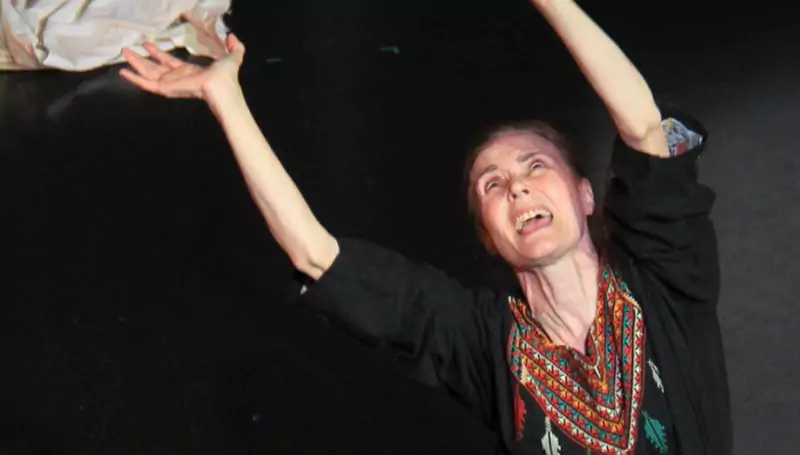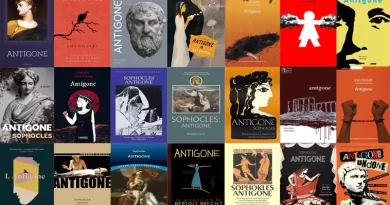“The Shroud Maker”, Edinburgh Festival Fringe
Venue: Pleasance Dome
To 25 August
Venue 23
Duration: 60 minutes
Three-star review ★★★
Ahmed Masoud has written and directed this work for one actor. Starring Julia Tarnoky, it follows the epic span of the titular character’s life in an endangered culture across a war-torn land in harrowing detail, based on the story of a real person. The narrative’s scope and trajectory recall The Kite Runner, and its content is just as brutal, inspiring and poetic.
Tarnoky, as shroud maker Hajja Souad, narrates her character’s life in the first person, occasionally acting out moments but leaving no time for pause as she rattles through the impressive number of incidents that make up the story. A monumental amount of information is conveyed as a result, but without much room for emotion or complexity.
Tarnoky’s performance injects a great deal of clarity and physicality so that each beat of the story is accessible. Masoud’s script depicts a multitude of tragedies, one after the other. Following the Second World War, Souad is driven out of her home as a child (her father’s farm has been designated for demolition to clear way for a kibbutz). She is forcibly adopted by the wife of high commissioner Lord Cunningham, loses her second family in the UN Partition, hides from the gunfire of Israeli soldiers … all in the first 20 minutes!
The problem is that the writing leaves little room for connecting with the audience and conveying raw emotion. As soon as one calamity ends, another begins at breakneck speed. Souad is placed in many difficult situations but no moral dilemmas. In the few moments of reflection, Tarnoky is necessarily frantic; her performance not quite managing to be seriously moving.
Richard Melkonian’s sound design is thoughtful and atmospheric, but the volume is too quiet to be effective. The set consists of an upstage wall of draped cloths that represent Souad’s funerary shrouds. But while she describes finely embroidered shrouds made from expensive cotton imported illegally from Egypt, the shrouds we can see look more like bedsheets drawn on with a Sharpie. The truth is that this is what Palestinians are resorting to, amid shortages, but it nevertheless detracts from the shrouds the writing otherwise conjures in the audience’s imagination. That is, the staging does not synthesize the writing with other theatrical elements to create anything greater than the sum of its parts.
The show is billed as a dark comedy, but the jokes are not exactly numerous; the best of them warrant no more than restrained laughter. There are clever and profound biblical analogies and a kaleidoscope of vivid imagery; these offer the writing a distinctive and varied quality.
Perhaps the show would be funnier and more moving if it weren’t for the frankly distracting fact that the performer appears to have no connection to the region or the character she is portraying? In practice, her white European ethnicity and RP accent repeatedly emerge as intrusive, especially in moments where Souad describes her father’s “brown hands” and her grandson’s “dark” face. Her accent can at least be explained away by the fact that her character has been educated by colonial British aristocrats from a young age, but her jarring pronunciation of “Allah” and “Alhamdulillah” are less excusable for what is ostensibly a native Arabic speaker. The reality of the suffering of the Palestinian people at the core of the play is only diluted when the words are spoken by a white English actor.
The Shroud Maker tells an urgent story, presenting the Palestinian struggle as long-lasting and multi-layered, a timely reminder that the current conflict follows a well-documented historical precedent. But no matter how impressive the story, the casting is troubling. As presented, the narrative does not convincingly justify itself as a piece of theatre.
[Photo above credit: Constance Hui.]









